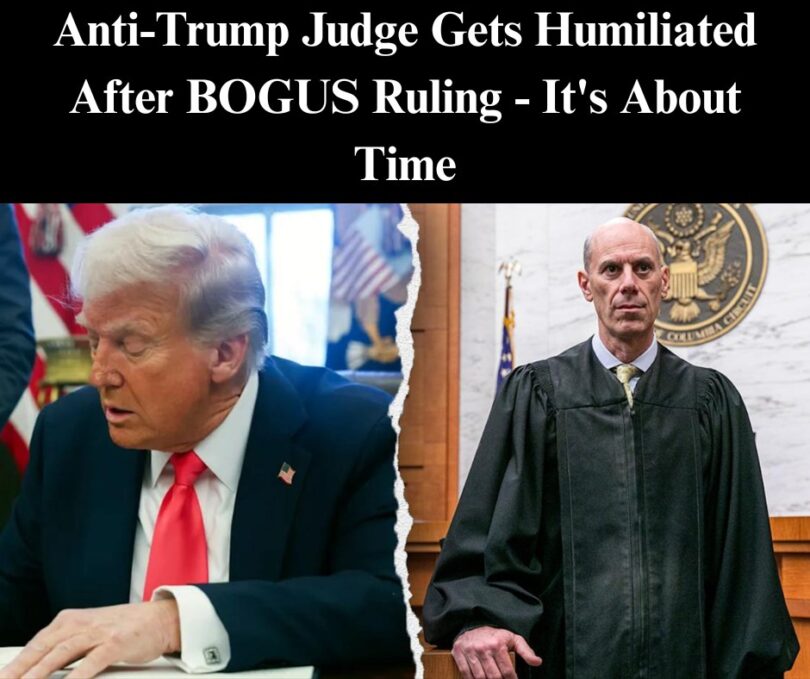Federal Appeals Court Blocks Judge Boasberg’s Contempt Efforts Against Trump Administration Over Deportation Flights
Editor’s Note: An earlier version of this article incorrectly stated that Judge James Boasberg was a Biden appointee. He was appointed to the D.C. District Court by President Barack Obama. We regret the error and have updated the article accordingly.
The legal battle over the Trump administration’s use of deportation flights to El Salvador intensified on Friday when a federal appeals court temporarily halted contempt proceedings initiated by U.S. District Judge James Boasberg.
A divided panel of the U.S. Court of Appeals for the D.C. Circuit issued a stay to give the court time to consider the government’s appeal. The ruling paused Boasberg’s attempt to hold administration officials in contempt over their refusal to halt deportation flights that occurred on March 15, which he argued were in “willful disregard” of his previous court order.
“This order should not be construed in any way as a ruling on the merits,” the panel stated in its brief decision.
The split decision saw Trump-appointed Judges Gregory Katsas and Neomi Rao vote in favor of the stay, while Judge Cornelia Pillard, an Obama appointee, dissented.
“There is no ground for an administrative stay,” Pillard wrote, citing the absence of an appealable order or right to relief, according to The Hill.
Background: The Deportation Dispute
Judge Boasberg had previously blocked the Trump administration’s attempt to deport Venezuelan nationals, including alleged MS-13 gang members, under the Alien Enemies Act, claiming due process had been ignored.
The Supreme Court later overturned his ruling, stating that legal challenges must be filed in the jurisdiction where the migrants are detained. However, Boasberg insisted that his original injunction remained active until explicitly lifted by the high court.
ACLU Emergency Hearing & Supreme Court Stay
On Friday, Boasberg also presided over an emergency hearing related to a new wave of planned deportations. The ACLU had requested an immediate block of upcoming removal flights. Boasberg, while expressing sympathy, declined to intervene.
“I am sympathetic to everything you’re saying. I just don’t think I have the power to do anything,” he stated.
Later that evening, DOJ attorney Drew Ensign indicated that while no deportation flights were scheduled for that night, the Department of Homeland Security maintained the authority to act as early as Saturday.
Hours later, the U.S. Supreme Court stepped in, issuing a temporary stay halting the deportation of detainees potentially affected by the Alien Enemies Act. The brief order did not provide a written explanation but included dissents from Justices Samuel Alito and Clarence Thomas.
The justices ordered the Trump administration to respond after further action is taken by the federal appeals court in Louisiana, where the underlying case is being considered.
“The government is directed not to remove any member of the putative class of detainees from the United States until further order of this court,” the order stated.
What’s Next?
The situation remains fluid as legal and political tensions escalate around the Trump administration’s immigration policy, judicial authority, and the application of wartime statutes like the Alien Enemies Act.
With multiple courts involved—including district courts, circuit appeals panels, and the U.S. Supreme Court—the final outcome of these deportation efforts and the administration’s broader strategy is far from settled.







Leave a Comment